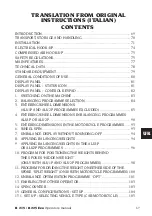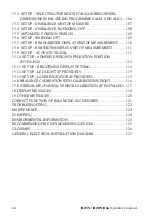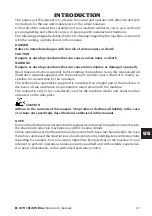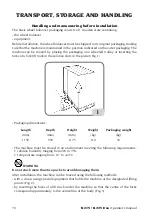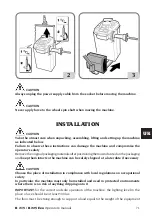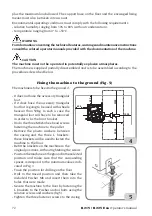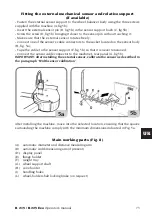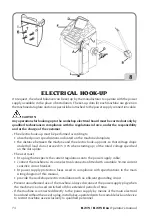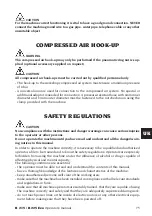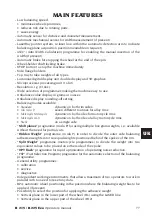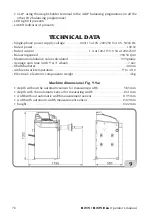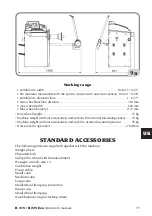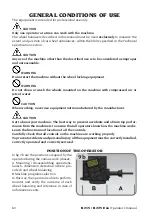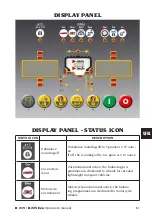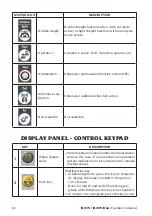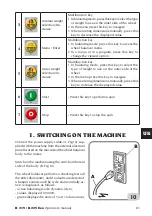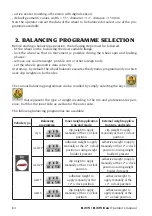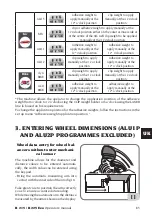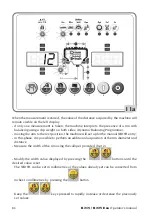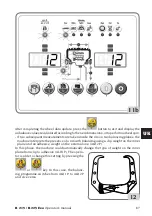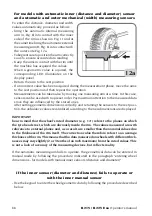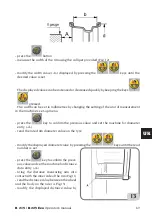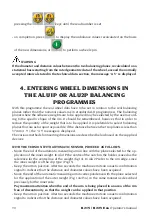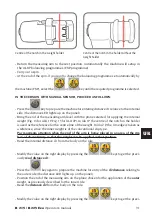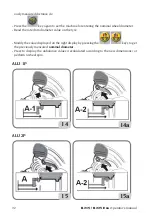
B 215 / B 225 Evo
Operator’s manual
77
UK
MAIN FEATURES
- Low balancing speed:
• minimises wheel spin times;
• reduces risk due to rotating parts;
• saves energy.
- Automatic sensor for distance and diameter measurement.
- Automatic mechanical sensor for width measurement (if present).
- LaserRay pointer system, ie laser line within the automatic detection arm to indicate
balancing plane acquisition position (available on request).
- AWC” (Auto Width Calculation) programme for enabling the manual insertion of the
width (if present).
- Automatic brake for stopping the wheel at the end of the spin.
- Wheel-holder shaft locking brake.
- STOP button to stop the machine immediately.
- Side flange holders.
- Top tray to take weights of all types.
- Luminous digital display unit double display and 3D graphics.
- Microprocessor processing unit (16 bit).
- Resolution: 1g (1/10oz).
- Wide selection of programmes making the machine easy to use.
- Unbalance value display in grams or ounces.
- Unbalance display rounding-off setting.
- Balancing modes available:
• Standard
dynamic on both rim sides
• Alu / Alu P
seven different routines for alloy rims
• Motorcycle Motorcycle
dynamic on both sides for motorcycle rims
• Motorcycle ALU
dynamic on both sides of alloy motorcycle rims
• Static
on a single side.
-
“Shift planes”
programme (in Alu P) for using multiple five gram weights, i.e.: available
without the need for partial cuts.
-
“Hidden Weight”
programme (in Alu P) in order to divide the outer side balancing
adhesive weights into two equal weights positioned behind the spokes of the rim.
- “
Split Weight
” programme (motorcycle programmes) to divide the weight into two
equivalent values to be placed on either side of the spoke.
-
“OPT flash”
programme for rapid optimisation of operating noise reduction.
- “FSP” (Fast Selection Program) programme for the automatic selection of the balancing
programme.
- General utility programmes:
• calibration
• service
• diagnostics.
- Independent working environments that allow a maximum of two operators to work in
parallel with no need to reset any data.
- RPA: automatic wheel positioning in the position where the balancing weight has to be
applied (if present).
- Possibility to select the position for applying the adhesive weight:
• Vertical plane in the lower part of the wheel (H6) using the LASER line
• Vertical plane in the upper part of the wheel (H12)


